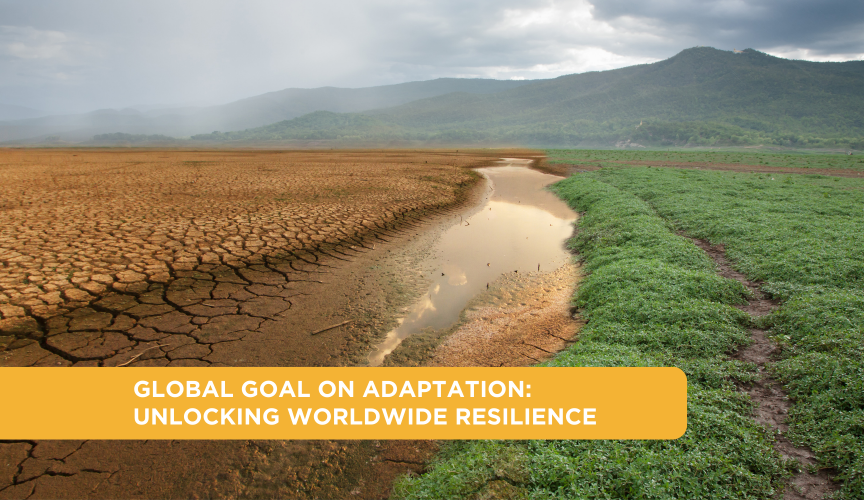
Letizia Magaldi, Executive Vice President Magaldi Green Energy
Exploring the impact of the Global Goal on Adaptation
The Global Goal on Adaptation represents a narrative of contemporary resilience. Acknowledging that climate change stands as one of the most urgent and pressing challenges of our time, with alarming impacts on ecosystems, communities, and global economies, eco-adaptation emerges as a vital strategy that needs to be seamlessly integrated into environmental and energy policies. Addressing this global threat may prove challenging with efforts solely directed at emission reduction and decarbonization.
The GGA warns us that although the "enemy" is greenhouse gases and the related global warming, defeating it will not be enough to protect people who are already experiencing its devastating impacts. Especially in developing countries. We are talking about dangers such as floods, droughts, storms. We are talking about risky consequences for survival, such as heat stress and food insecurity.
Conditions that currently affect 3.6 billion people considered "highly vulnerable" on the planet. Making two simple but striking calculations is immediate: the global population today amounts to 8 billion individuals. Consequently, just under half of the living human beings are already experiencing the effects of the extremely warm "here and now”.
Proposed in 2013 by the AGN - African Group of Negotiators and established in 2015 with Article 7 of the Paris Agreement, the Global Goal on Adaptation represents an international collective commitment to the immediate adoption of adaptation strategies, recognizing that, despite efforts to mitigate emissions, it is essential to prepare for and respond to changes already underway.
Global Goal on Adaptation, an opportunity to for global collaboration
Among the actions planned so far are the design of more resilient infrastructure, the conservation and restoration of ecosystems and biodiversity, the implementation of sustainable agricultural practices, and the promotion of fair and resilient development models. The overarching goal is to minimize damages.
The GGA is probably to be considered one of the most extraordinary opportunities for global collaboration, sharing best practices, and innovations. However, it is also one of the most complex battles to fight, mainly because, despite its causes affecting all of us, its effects are manifested at a hyper-local level, meaning they are locally confined. In a context where, conversely, policies are designed on a broad scale and almost never tailored to specific, delimited territories.
The GGA has taken up significant space at the latest United Nations Climate Change Conference, COP28, in Dubai, with reflections and proposals that have also emphasized actions to narrow the gap between strategies that are too global and issues that are very local.
The gradual shift away from fossil fuels and the emphasis on adopting the new "loss and damage" fund have somewhat overshadowed the GGA. The disappointment, especially in developing countries, has been widespread, as greater constraints on commitments related to funding, targets, and technology transfer were expected for what has repeatedly been described as "a matter of life or death" for the poorest populations.
Lastly, a new 2-year work program has been initiated, which will develop indicators to measure progress towards achieving the Global Goal on Adaptation. This program also aims to increase ambition and enhance action and support for GGA activities.
In the document, financial resources have been deemed still insufficient compared to what is actually needed.
Fighting the climate challenge with technologies
Our responsibility, not just as companies but beyond, is not merely to innovate and provide efficient and environmentally friendly solutions. It also involves actively collaborating with governments, organizations, and communities to implement these innovations strategically and promptly. Climate change is presenting increasingly urgent and complex challenges, putting the stability and prosperity of communities and businesses worldwide at risk. There is still a long way to go to fully enhance climate resilience everywhere, a goal that is absolutely vital.



